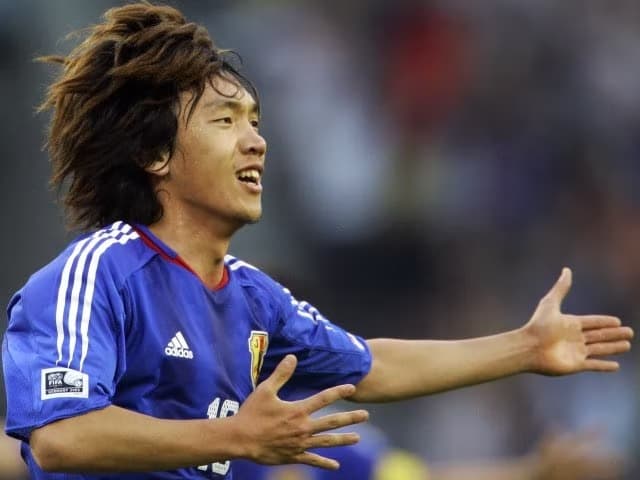Japan has participated in every World Cup since 1998. The Samurai Blue have twice progressed past the group stages, with their best performance coming in 2002 when they won their group.
They’ve also had a lot of success in the Asian Cup, winning four of the past six competitions. Football has become more and more popular in Japan as a result of Japanese players joining European teams in recent years.
10. Yuji Nakazawa (1999-2010, 17 goals)
Nakazawa, one of four football players from Japan to make 100 international appearances, is a hero in his own country. The 36-year-old was a tough-tackling defender who also had a talent for scoring goals at crucial moments.
9. Junichi Inamoto (2000-present, five goals)
Inamoto was one of the first Japanese players to play in Europe, with bleached blonde hair. His team was Arsenal, but he found it difficult to live up to the anticipation surrounding his entry.
8. Shinji Okazaki (2008-present, 38 goals)
At age 28, Okazaki still has time to climb the scoring rankings for the Japanese national team. He is presently tied for third with Hiromi Hara, but second-placed Kazuyoshi Miura, who has 55 goals to his credit, seems achievable – provided that he is selected and is physically fit.
7. Keisuke Honda (2008-present, 20 goals)
Before 2010, Honda’s goal against Cameroon in Bloemfontein gave Japan its first World Cup victory away from home. The aggressive midfielder followed it up by scoring against Denmark in the last group game before switching roles and setting up Okazaki for a deft goal.
He was selected by FIFA as the Man of the Match in three of Japan’s four games in that tournament, earning him the title of Japanese Player of the Year.
6. Shunsuke Nakamura (2000-2010, 24 goals)
Nakamura, who is still a fan favourite among Celtic supporters, had a few standout performances during his four years at Parkhead. Prior to moving to Scotland in 2005, he was connected with a number of teams, including Atletico Madrid and Borussia Dortmund, but he quickly proved that the fight for his signing was worthwhile.
5. Yasuhito Endo (2002-present, 12 goals)
Endo, in contrast to many of his foreign colleagues, has never felt pressured to put himself to the test abroad. The 34-year-old has been with Gamba Osaka since 2001 after early spells with Yokohama Flugels and Kyoto Purple Sanga. Endo has made the J-League Team of the Season ten times since joining Gamba.
4. Hidetoshi Nakata (1997-2006, 11 goals)
With Nakata calling it quits at the age of 29, it felt like a great waste of ability. After all, he had had a significant impression in Italy, helping Parma defeat Juventus to win the Coppa Italia in 2002 and won the Serie A championship with AS Roma in 2001.
3. Shinji Kagawa (2008-present, 17 goals)
Just 25 years old, there is every chance that by the time Kagawa brings an end to his career, he will be regarded as Japan’s best ever footballer. After Cerezo Osaka made an impression, Borussia Dortmund signed the playmaker to the Bundesliga in 2010 for under £300,000.
In the end, he would make that purchase price seem like plain old thievery by helping Dortmund win the Bundesliga twice in his two seasons with the team.
2. Kazuyoshi Miura (1990-2000, 55 goals)
At the ripe old age of 47, Miura—who was born in 1967—is astonishingly still engaged in professional football. He joined Yokohama FC in 2005, and he presently serves as the offensive coordinator for the J-League Second Division team.
He was the first Japanese football player to ever play in Serie A thanks to Genoa’s attraction to him in 1994 due to his earlier career’s goal-scoring prowess. However, he found it difficult to adjust to life in Europe and soon left for his native country after a brief stay in Croatia with Dinamo Zagreb.
1. Kunishige Kamamoto (1964-1977, 80 goals)
Long before the J-creation League’s in 1993 and all the success and attention that came with it, one-club guy Kamamoto was the first great superstar Japan created.
Kamamoto, who is now 70, relied heavily on goals for both club and country. The centre striker scored over 250 goals throughout his 17-year tenure with Yanmar Diesel. It’s impressive that he only failed to produce a double-figure return in three campaigns.

